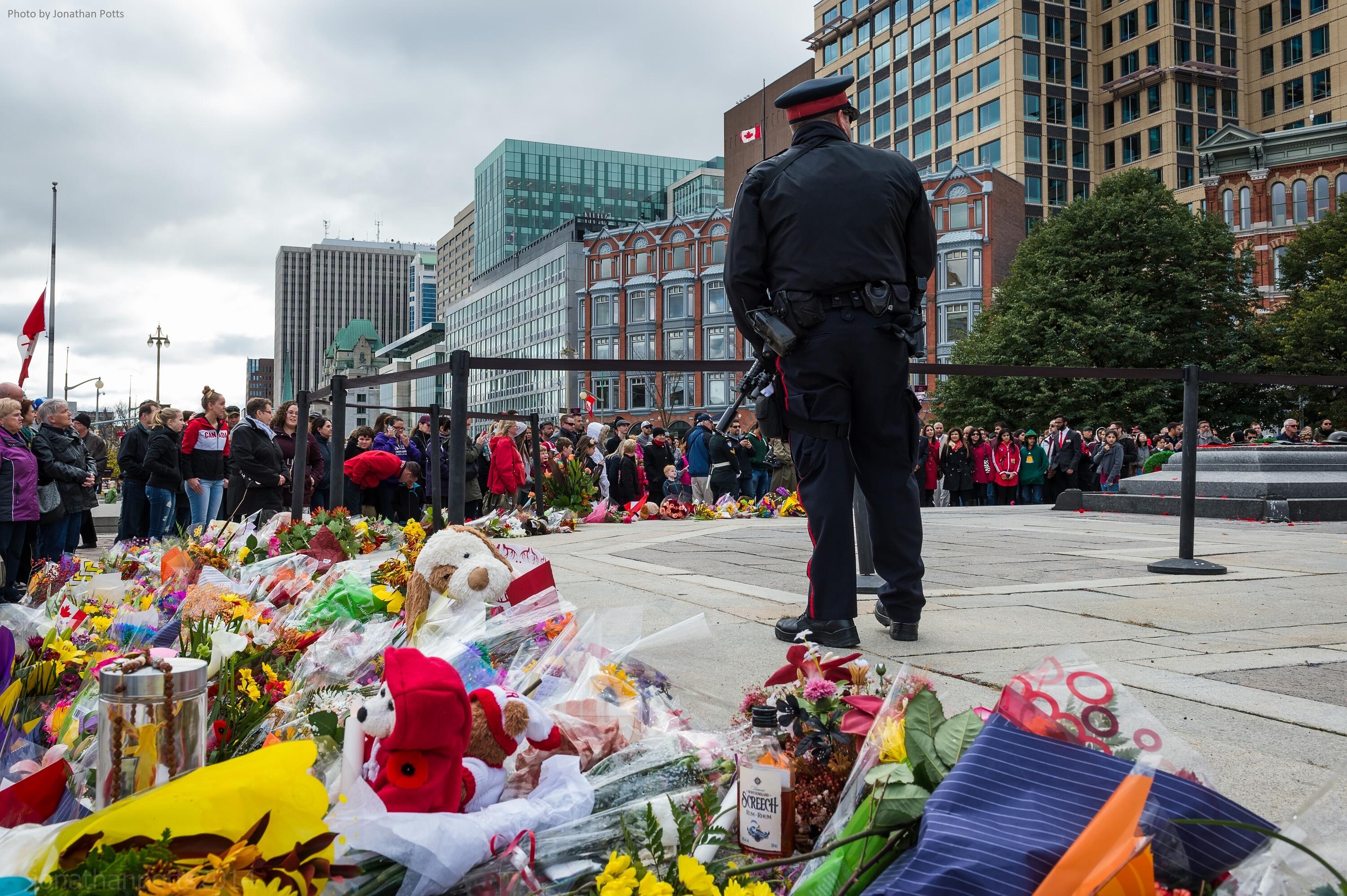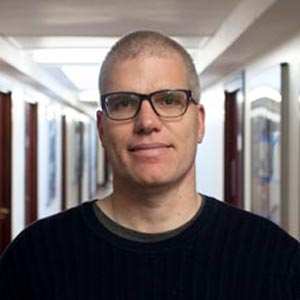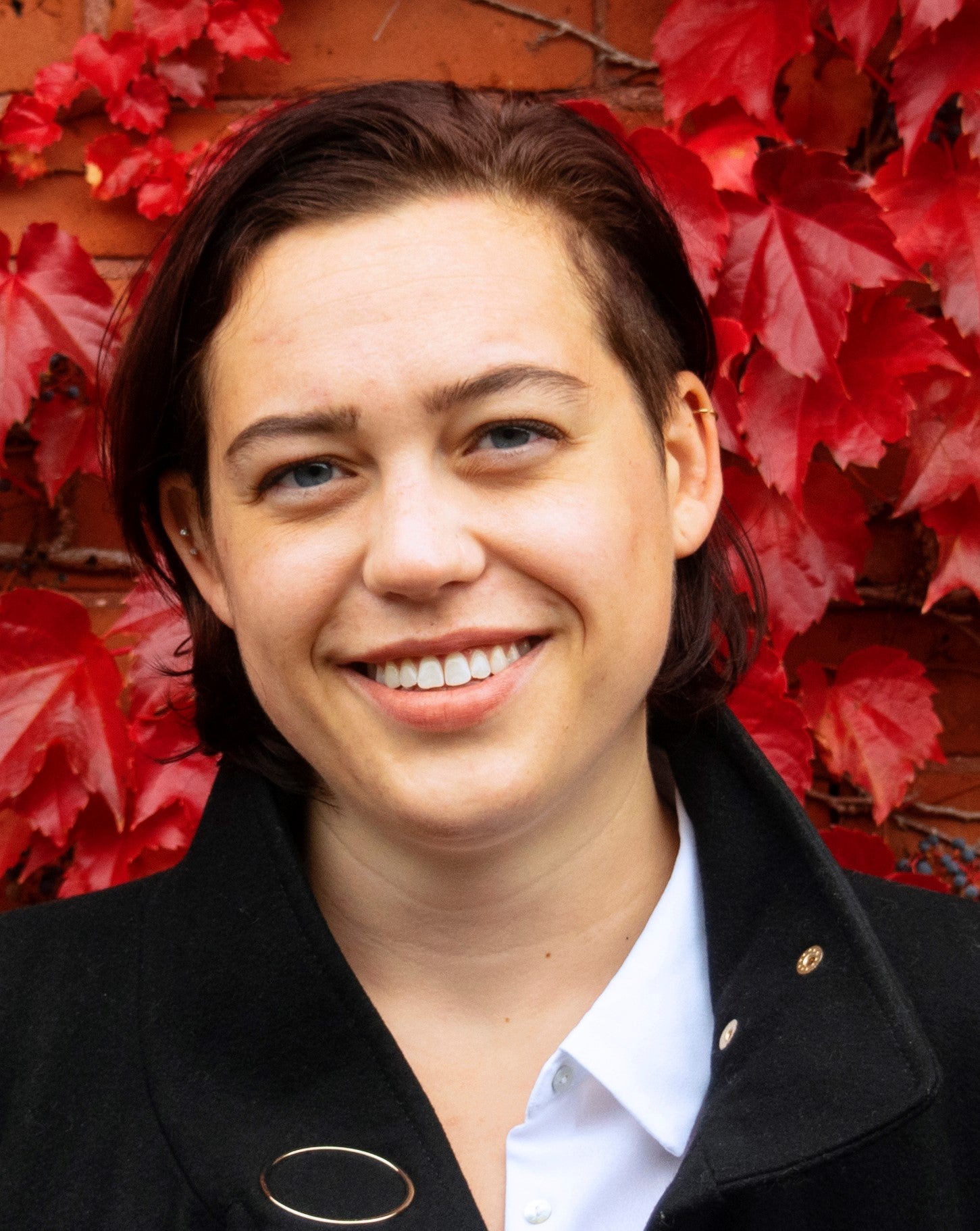
To honor and remember the 6th Anniversary of Parliament Hill Attacks in Ottawa, Ontario, Canada, on October 22, 2014, the DSF Group and the Canadian Network for Research on Terrorism, Security, and Society (TSAS) have gathered speakers for the panel Violent Extremism in Canada.
The attack, carried out by Michael Zehaf-Bibeau, left Nathan Cirillo, a Canadian Soldier and reservist on ceremonial sentry duty dead, and raised questions about parliamentary security while also sparking a national debate over the nature of terrorism.
Each of our experts will provide a brief presentation on their work and the final 30 minutes will be dedicated to questions from the audience.
- Steve Hewitt (Canadian and American Studies, University of Birmingham) - Shooting, Bombing, and Vehicle Attacks: A History of Male Lone Actor Terrorism in Canada
- Shandon Harris Hogan (Radar Solutions, Adjunct Research Fellow, Victoria University Australia) - The Comparative Analysis of Canadian and Australian Domestic Jihadist (2000-2020)
- Michael Nesbitt (Faculty of Law University of Calgary) - The Toronto 18 case based on the co-edited book on the topic and or his recent article about terrorism prosecutions in Canada.
- Jillian Hunchak (Insight Threat Intelligence) - The Far-Right extremist threat in English- and French-speaking Canada, the risk it poses, and its potential for growth.
Panelists

Steve Hewitt, University of Birmingham
Steve Hewitt is a British/Canadian academic interested in security and intelligence in the past and present and in a US/UK/Canada context. His work has covered a range of topics, such as state surveillance against Canadian universities, UK and US counter-terrorism, a history of informants, and the world's most famous police force, the Royal Canadian Mounted Police.
He completed his doctoral work at the University of Saskatchewan and taught there and at the University of Indianapolis before going to University of Birmingham. He has written several books and articles related to security and intelligence, such as the history of Canadian policing and security, counter-terrorism in the UK since 9/11, and the use of informers by the police and intelligence services. Due to the nature of his work, he’s appeared extensively in the media, including on BBC Radio and Television, CBC Television and Radio.

Michael Nesbitt, University of Calgary
Michael teaches and researches in the areas of criminal law, national security law, and international organizations and human rights. He engages regularly with the media on his areas of research, including writing comments for the Globe & Mail and the National Post, providing TV and radio interviews for the CBC, CTV, and other local, national and international broadcasters, and interviews with local and national newspapers and legal publications. Before joining the Faculty of Law in July 2015 he practiced law and worked on Middle East policy, human rights, international sanctions and terrorism for Canada's Department of Foreign Affairs. Previously, he completed his articles and worked for Canada's Department of Justice, where his focus was criminal law. Michael has also worked internationally for the United Nations' International Criminal Tribunal for the Former Yugoslavia in the Appeals Chamber.
While completing his doctorate Michael was a SSHRC Joseph-Armand Bombardier CGS Scholar, executive editorial assistant to the University of Toronto Law Journal, and taught in the legal research and writing program.

Shandon Harris Hogan, Radar Solutions
Shandon Harris Hogan is an Australian Countering Violent Extremism (CVE) consultant with more than a decade’s experience working for both university and government organizations. Formerly a Researcher at the Global Terrorism Research Centre (Monash University), Shandon is currently an Adjunct Fellow at Victoria University. He holds Masters degrees in International Relations (Monash University) and Research (Macquarie University).
Shandon’s research focuses on understanding violent extremism and analysing the structure of terrorist networks. This work has been published in a number of leading academic journals including Studies in Conflict and Terrorism, Terrorism and Political Violence and Behavioural Sciences of Terrorism and Political Aggression (where he holds both the most cited and most read articles in the history of the journal). In 2014 he was named the Future Strategic Writer of the year by the Institute for Regional Security.
Shandon’s applied research focuses on helping to facilitate disengagement from violent extremism through the design, implementation and evaluation of CVE programs and policy. Since 2010 he has been involved with more than a dozen Counter-Terrorism and CVE applied research grants with partner agencies including Victoria Police, the Federal Attorney-General’s Department and the Australia New Zealand Counter-Terrorism Committee.
Shandon has also delivered presentations at a range of international and domestic academic conferences, lectured in post-graduate university courses and briefed high level government and police officials on matters of terrorism, security and international relations. Shandon Harris Hogan commented on the direction of CVE in Australia in this ABC 4 Corners documentary.

Jillian Hunchak, Insight Threat Intelligence
Jillian graduated in from King's College London in 2018 with an M.A. in Terrorism, Security and Society. She works as a researcher and studies Right Wing extremism in the Canadian, American, and British contexts.
Moderator

Veronica Kitchen, University of Waterloo
Veronica M. Kitchen is an Associate Professor of Political Science at the University of Waterloo and in the Balsillie School of International Affairs. Her research is primarily on national security in a Canadian context, from the perspective of critical and feminist security studies. Her most recent book is Heroism and Global Politics (Routledge, 2018), co-edited with Jennifer Mathers.
Kitchen is an executive member of the Canadian Network for Research on Terrorism, Security and Society (TSAS) and in 2018-2019 was its Acting Director. She is an active member of Women in International Security (WIIS) Canada, and part of the editorial board of International Journal.
Prior to joining the University of Waterloo, Kitchen was a SSHRC Post-Doctoral Fellow at the Centre of International Relations at the University of British Columbia. She completed her PhD in political science at Brown University, where she was a Fulbright Scholar. She has an undergraduate degree in International Relations from Trinity College at the University of Toronto.
